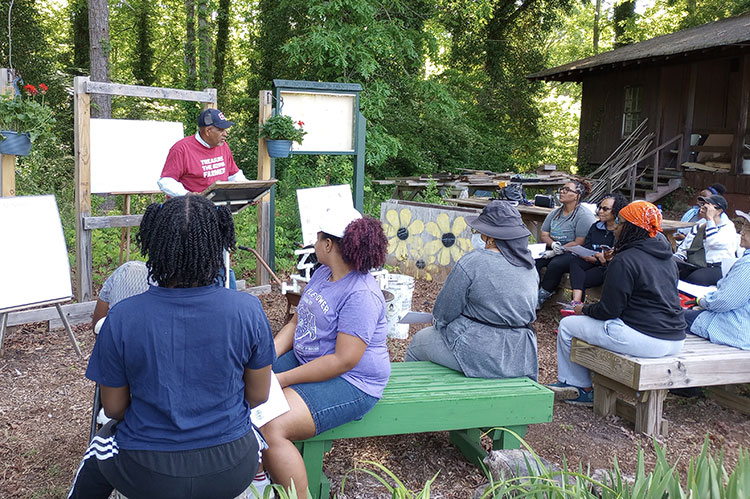University of Georgia

Volume XXXIII |
Mosquitoes transmit several serious diseases in Georgia, including Eastern equine encephalitis, LaCrosse encephalitis and West Nile virus. All of these diseases can produce encephalitis, which is inflammation of the brain, and are extremely serious when a full-blown case occurs. At last count, there were 47 cases of West Nile Virus in Georgia in 2007.
Because there are 62 species of mosquitoes in Georgia, different areas of the state may be infected by different species.
Gardeners working in rural or coastal areas are often bothered by a wide variety of native mosquito species. The daytime black-and-white-striped Asian Tiger mosquito often bites gardeners in suburban and inland areas. This mosquito prefers to develop in containers or any manmade item that holds water. It doesn’t typically fly more than 300 feet.
The number of mosquitoes in Georgia isn’t the only problem. Peak gardening time – dawn and dusk – is also when mosquito activity is the heaviest. As a result, gardeners often have to deal with mosquitoes while enjoying their hobby after work or before it gets too hot in the morning. One of the most common recommendations is to avoid periods of peak activity, but this can be hard to follow.
The most effective technique for preventing mosquito bites is the proper use of insect repellents. Products containing DEET, the longtime standard, are still an excellent choice. Typically, concentrations from 10 percent to 30 percent will protect gardeners for the few hours they are active. The Centers for Disease Control and Prevention and American Academy of Pediatrics also approved these strengths for children over two months old.
Other repellents approved by the USDA for prevention of mosquito bites are oil of lemon eucalyptus and picaridin. Neither of these products are approved for use on children under the age of three. Products containing DEET are still the best choice for young children. When treating children, an adult should apply the repellent to his or her hands first and then rub the repellent onto the child’s exposed skin.
It is extremely important to cover all exposed skin with repellent. Mosquitoes are very adept at locating untreated areas.






